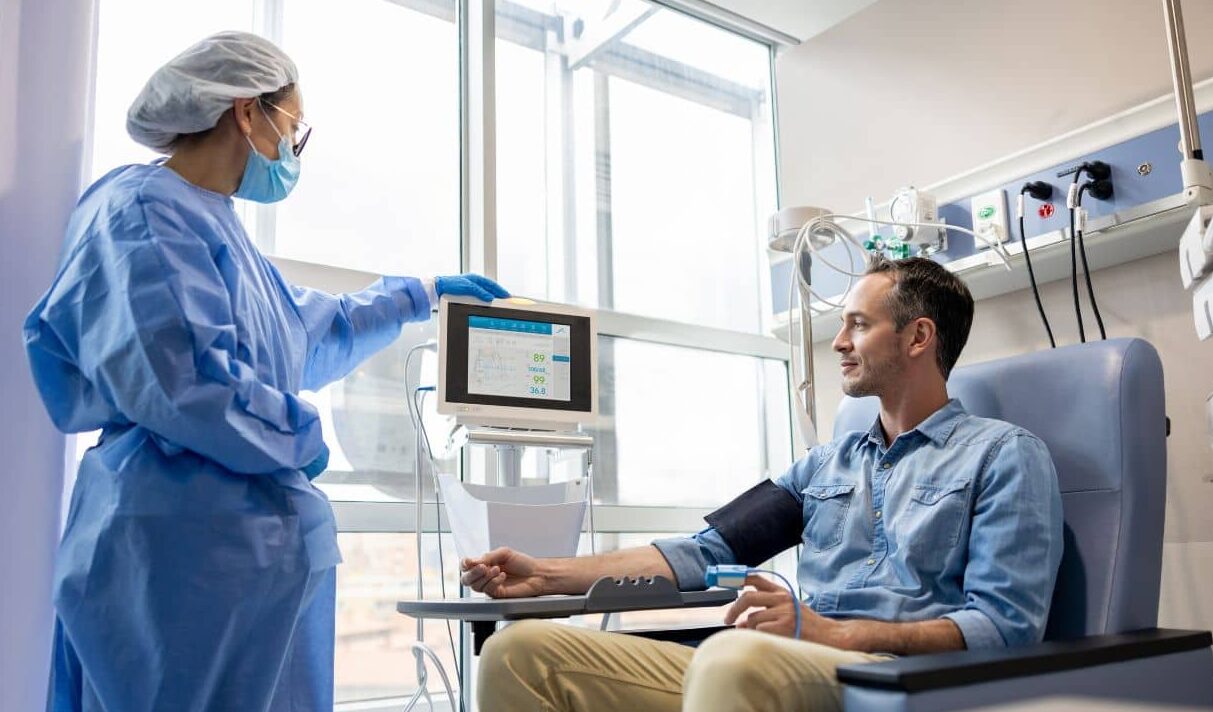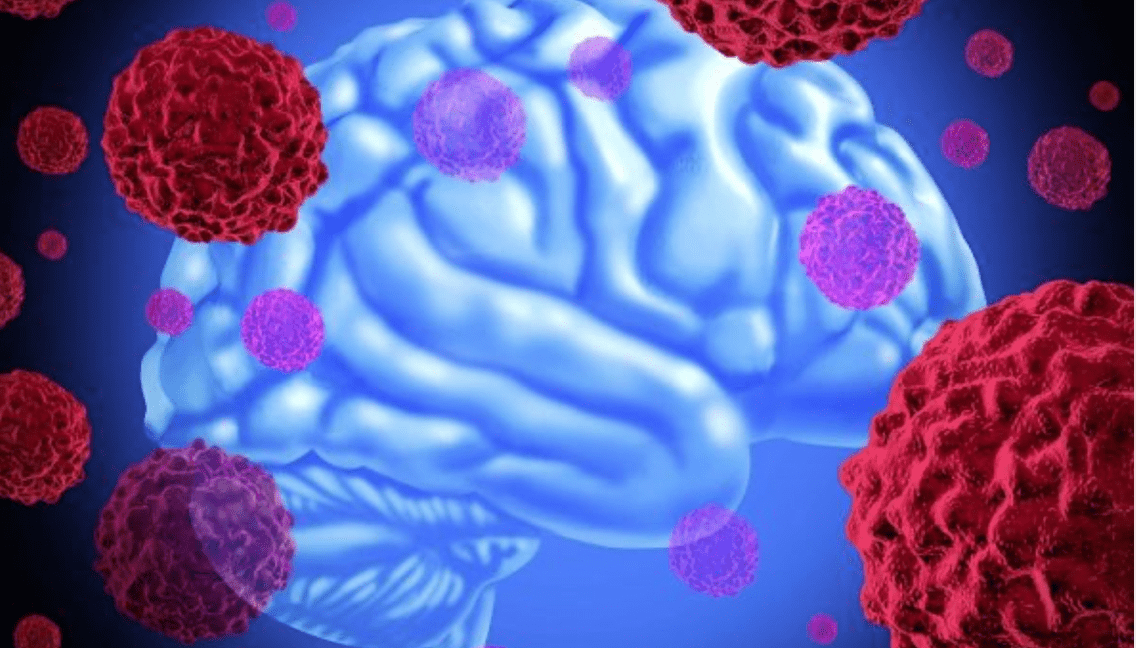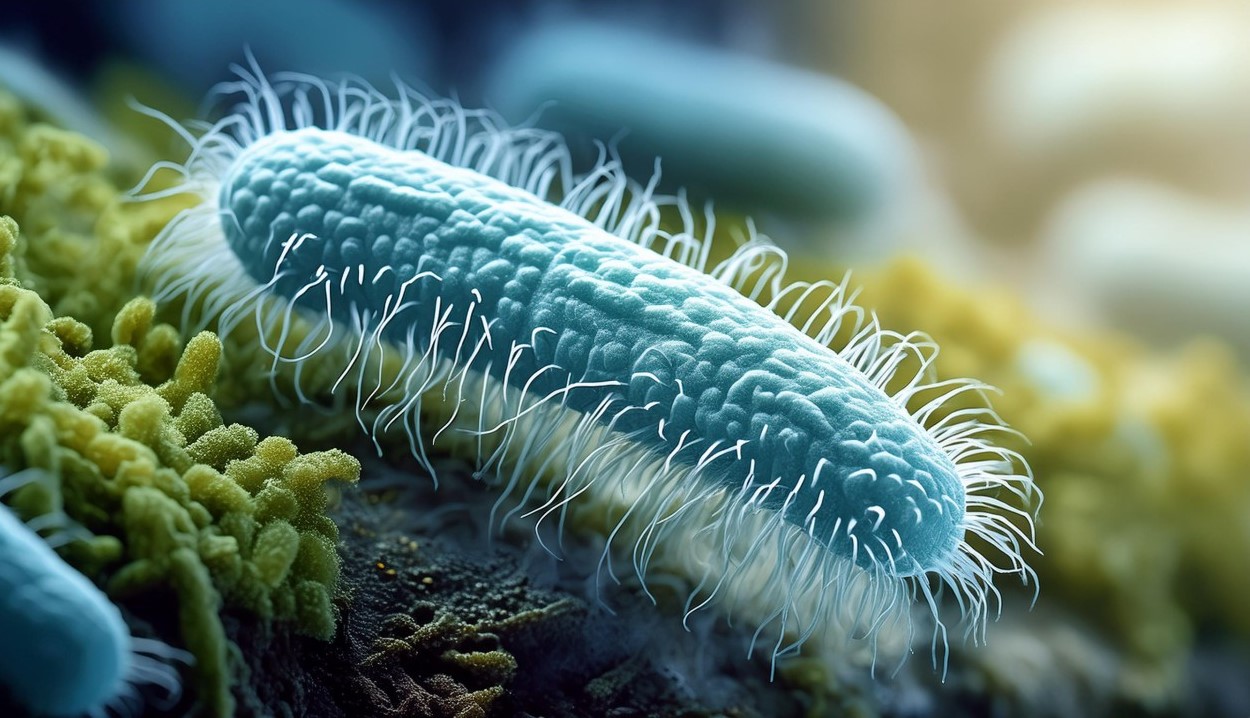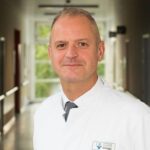-
 News
When glucose levels are low, chemotherapy ceases to affect cancer cells
News
When glucose levels are low, chemotherapy ceases to affect cancer cells
-
 News
Excessive treatment of prostate cancer in older men may reduce quality of life without increasing its duration
News
Excessive treatment of prostate cancer in older men may reduce quality of life without increasing its duration
-
 News
Brain cancer can be cured by viruses
News
Brain cancer can be cured by viruses
-
 News
Ways to reduce lymphatic pain in breast cancer have been found
News
Ways to reduce lymphatic pain in breast cancer have been found
-
 News
Scientists have turned bacteria into a powerful weapon against cancer
News
Scientists have turned bacteria into a powerful weapon against cancer
All news
Oncology clinics in Germany
Diagnosis of all types of cancer in Germany is considered the most accurate in the world. The country uses a set of examinations that make it possible to establish or refute an oncological diagnosis, to determine the stage of cancer and the sensitivity of the tumor to various drugs. Thanks to this versatile approach to diagnostics, German specialists achieve the best results in the treatment of patients.
Oncology treatment is a priority medical area in Germany. The country’s cancer centers presented on the MedTour website have been certified by the German Cancer Society DKG. This testifies to the high quality of diagnostics, treatment of all types of oncological diseases and rehabilitation of patients.
Oncosurgeons who perform operations have not only extensive clinical experience, but also all modern instruments in their arsenal. Doctors use robotic surgery when minimally invasive surgery without large incisions is acceptable. This allows patients to recover faster and return to their normal lifestyle.
MedTour patients recommend clinics for the treatment of oncological in Germany:
Doctors for the treatment of oncology in Germany
all oncologists →Patient reviews
Frequently Asked Questions
What to look for when choosing a hospital in Germany for cancer treatment:
- Clinic accreditation. The best cancer centers have certificates that confirm the high quality of medical care and safety for foreign patients.
- Availability of the necessary specialists in the clinic. For cancer treatment to be as effective as possible, it is necessary to make sure that there is a department on the basis of the medical complex, where doctors specializing in the treatment of specific types of cancer work. A multidisciplinary approach with the assistance of a doctor-oncologist will provide the best result.
- If you do not know which doctor is better to contact and how to sign up for a German clinic – leave a message on the MedTour website. The coordinating doctor will advise you free of charge and help you with the choice.
Most medical centers in Germany offer complete solutions for cancer patients. This means that a foreign patient will be able to undergo a full diagnosis and, on the basis of an accurately diagnosed diagnosis, he will be prescribed treatment. After or during therapy, a team of rehabilitation specialists will work on the patient’s recovery, taking into account individual health indicators.
Thus, on the basis of one clinic, the patient will be able to receive the entire range of medical services, without the need to take tests and consult with specialists from different hospitals.
The main advantage is the access of German doctors to all medical innovations existing in the world. Therefore, patients who undergo cancer treatment in Germany have the best indicators of duration and quality of life.
Several factors affect the cost of treatment:
- The scope of diagnostic procedures;
- Treatment program using the latest medical developments in the field of cancer therapy;
- The pricing policy of the clinic, the need to pay separately for the services of medical personnel, meals, and so on.
Examples of prices for procedures and operations for cancer in German clinics:
- Brachytherapy – from $1 300;
- Premium check-up for early diagnosis of cancer – from $4 700;
- Comprehensive diagnostics of prostate cancer – from $5 000;
- Radiation therapy course – from $9 000;
- Breast cancer surgery – from $10 500;
- Focused ultrasound ablation HIFU – from $12 500;
- Bone marrow transplant from a related donor – from $180 000.
Despite the high cost of treatment, foreign patients prefer German clinics. Main reasons:
- Germany is generally a popular destination for medical tourists due to its high level of service;
- German hospitals have all the necessary equipment for the diagnosis and treatment of patients with cancer of any complexity;
- Doctors have extensive clinical experience, often attend international conferences and constantly improve their qualifications.
Another reason for choosing Germany for cancer treatment is the lack of awareness of patients about the possibilities of cancer clinics in other developed countries. To get complete information about the options for oncology treatment abroad, leave a message on the MedTour website. A doctor coordinator will help you choose the best option for your oncology treatment.
Benefits of cancer treatment in Germany
In Germany, patients with cancer diagnoses receive the full range of medical services that are regulated in Europe and America. This means that examinations and direct cancer treatment are carried out according to the modern medical protocols of the NCCN.
Unlike the conditions in CIS hospitals, German clinics are equipped with the latest generation equipment. Installations for diagnostics, radiotherapy and surgery are strictly monitored by manufacturers. Therefore, patients who go to Germany for treatment are insured against side effects due to poorly performed procedures.
Cancer diagnosis in Germany
Cancer hospitals in Germany are equipped with high-precision equipment that allows doctors to diagnose and prescribe the most effective treatment. Oncologists use 3 Tesla MRI, PET-CT, endoscopic research methods for patients of all age groups.
German oncologists conduct the following types of examinations for suspected cancer:
- Computer, magnetic resonance and positron emission tomography;
- Endoscopic research methods;
- Molecular biological analysis.
Every foreign patient can undergo an oncology check-up in Germany. This is a comprehensive diagnosis that allows doctors to identify a dangerous oncological process in the body at an early stage or a precancerous disease. Even in the absence of symptoms, the doctor will be able to detect cancer thanks to modern examination methods and the accurate results they provide. In stages 1-2, the cancer responds better to treatment and the patient is more likely to achieve complete remission.
Oncology treatment in Germany according to modern standards
In almost all types of oncology, surgery remains the key treatment method. According to the treatment protocols, the doctor may prescribe chemotherapy to the patient before surgery and radiation therapy after removal of the tumor.
Cancer treatment in Germany gives patients a wider choice of drug treatments than in other countries. This is due to the latest developments, which are most often the achievements of German scientists. Cancer centers in Germany have access to all modern drugs that are used in treatment programs for sarcoma, carcinoma and all other types of cancer. In Germany, drugs are tested and approved for production by two authorities at once: the Federal Institute for Drugs and Medical Devices (BfArM) and the Paul-Ehrlich-Institut (PEI).
Cancer surgery in clinics in Germany
The main types of surgical treatment for cancer in German hospitals:
- Laparoscopic and thoracoscopic operations are methods of removing a tumor with a special instrument through small incisions up to 2 cm in diameter. Doctors use laparoscopy for tumors in the abdominal cavity, and thoracoscopy for surgery in the chest area.
- Transluminal surgery is the removal of a neoplasm using medical instruments that a doctor inserts through natural openings in the body. This method is used by surgeons for malignant tumors in the early stages in the organs of the gastrointestinal tract and the genitourinary system.
- Robot-assisted surgery – low-trauma operations that doctors carry out with the help of a Da Vinci robot through small incisions up to 2 cm. The latest generation Da Vinci installations are equipped with a camera with 20x magnification, so the surgeon sees in the smallest detail the entire operating area. The unit is controlled in a special console, which translates the movements of the doctor’s hands into smoother and more accurate ones.
- Open surgery is a surgical intervention, during which the doctor performs manipulations through an incision up to 20 cm. Doctors resort to abdominal surgery if it is impossible to carry out a low-traumatic intervention (the tumor is too large, adjacent tissues and organs are affected).
Oncology therapy in Germany
Specialists in German clinics use non-surgical methods of cancer treatment before, after or instead of surgery (if indicated). Depending on the type of tumor and the stage of the disease, patients are prescribed the most effective complex of therapy.
Radiation therapy is a non-surgical method of destroying a cancerous tumor using radiation. Radiation therapy can destroy an inoperable tumor, shrink the growth before surgery, and prevent cancer recurrence.
Radiation therapy options:
- Remote radiotherapy – irradiation of the tumor using a linear accelerator, which is located at a distance from the patient. The most popular in Germany are TrueBeam and CyberKnife. These linear accelerators irradiate the neoplasm with an accuracy of 1 mm without affecting healthy tissue.
- Brachytherapy is contact radiation therapy, in which a doctor places radioactive seeds or needles into the tumor. Radiation irradiates malignant neoplasms locally with great therapeutic efficacy.
- Radionuclide radiation therapy is a liquid or capsule containing a radioactive substance that the patient swallows. Malignant cells absorb the drug, which leads to their gradual destruction. In healthy tissues, the substance accumulates in small volumes, so the procedure is safe for the body and has no pronounced side effects.
Chemotherapy is the treatment of cancer with drugs that the patient takes intravenously, intramuscularly, or in pill form. German-made chemotherapy is easier for patients to tolerate and does not have such side effects as outdated drugs used in CIS hospitals.
High-quality chemotherapy can reduce the size of the tumor before removal, destroy metastases and slow down the development of cancer. At the same time, the negative impact on the entire body is minimal.
Doctors use HIPEC chemotherapy if there are multiple metastases to the abdominal organs. After removing the visible parts of the neoplasm, a warmed-up (up to about 42-43 degrees) anticancer drug is injected into the affected area. Due to the high temperature, it penetrates deeper into tissues and destroys more cancer cells than traditional chemotherapy.
Application of innovative cancer treatment methods in German clinics
Key research centers for the study of cancer are located in Germany. The high economic level of the country makes it possible to sponsor scientific activities, therefore, key innovations in cancer treatment are developing mainly in Germany.
Large oncology clinics in Germany collaborate with scientific organizations. Many hospitals have their own laboratories and research departments.
New methods of oncology treatment in Germany
The German cancer research center (DKFZ) is the largest biomedical research institution in Germany with over 3,000 employees. Scientists from the DKFZ are analyzing how cancer develops, registering risk factors for oncological diseases, and looking for new methods of its treatment.
As part of the research of this company, the use of immunotherapy was introduced into practice. According to data published in September 2021 on the DKFZ website, the upgraded immunotherapy drug BiMAb has shown high efficacy in the treatment of leukemia. At this time, the possibility of using such a treatment for solid tumors in various organs is being studied.
The Nordwest clinic, which closely cooperates with the American Ludwig-Maximilian Institute and is the academic teaching hospital of Goethe university, practices the use of cancer vaccines. Such vaccines include an anti-tumor antigen and are produced from the patient’s blood. The medicine acts precisely on the tumor and increases the effectiveness of other therapies.
Examples of innovative procedures for the treatment of oncology that are used in German clinics:
- NEOliquid fluid biopsy – allows doctors to determine the response of a malignant tumor in the lungs to therapy. The procedure does not require invasive chest intervention – the biopsy is done through a blood test.
- Intraoperative electron beam therapy IORT – targeted irradiation of the tumor during surgery. Doctors use a high dose of radiation to minimize the risk of cancer recurrence.
- Radiofrequency ablation is a non-surgical method of destroying a tumor with a high temperature. The technique is used in the early stages of liver and pancreatic cancer (these are one of the most difficult types of oncology).
Rehabilitation in Germany after cancer treatment
Specialists of German clinics select the rehabilitation program for patients with oncological diagnoses individually. The choice of techniques depends on the patient’s age, stage and type of cancer, the volume of surgery, the number of courses of radio and chemotherapy, and concomitant diseases.
Physiotherapists, nutritionists, psychologists and other specialized doctors work with patients. The clinics are equipped taking into account the psychological and physical comfort for patients.
Rehabilitation during and after cancer treatment allows the patient to:
- Restore physical functions;
- Return the ability to work;
- Adapt socially;
- Restore psychological balance.
Why is it worth undergoing oncology treatment in Germany
Contacting a medical center in Germany enables every patient with cancer to receive:
- Reliable examination data for an accurate diagnosis;
- Effective treatment, taking into account all the characteristics of the type and stage of cancer;
- Comprehensive rehabilitation according to individual needs;
- The best result of all possible options, even in the most difficult cases.
To sign up for an oncology clinic in Germany, leave a request on the MedTour website. A medical coordinator will help you choose the best medical facility and the most suitable oncologist.
Published:
Updated:

Information on this webpage verified by the medical expert







Does Ralf buhl also remove brain lipomas?